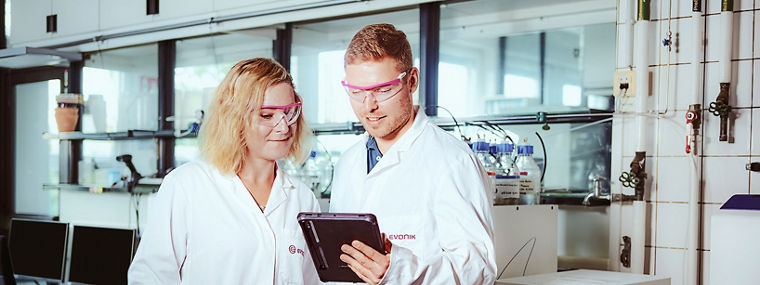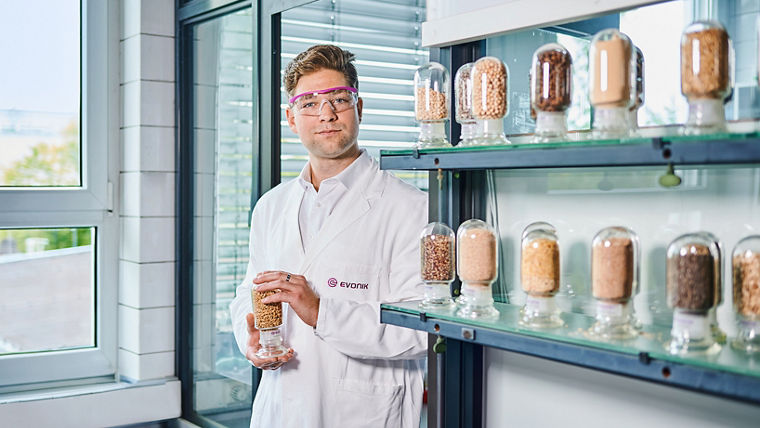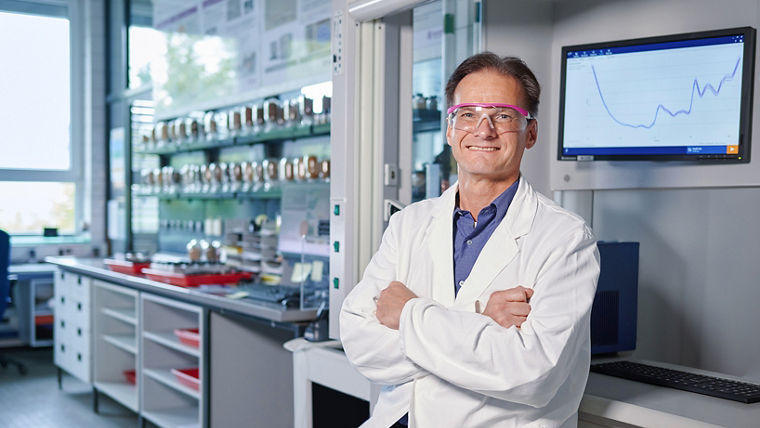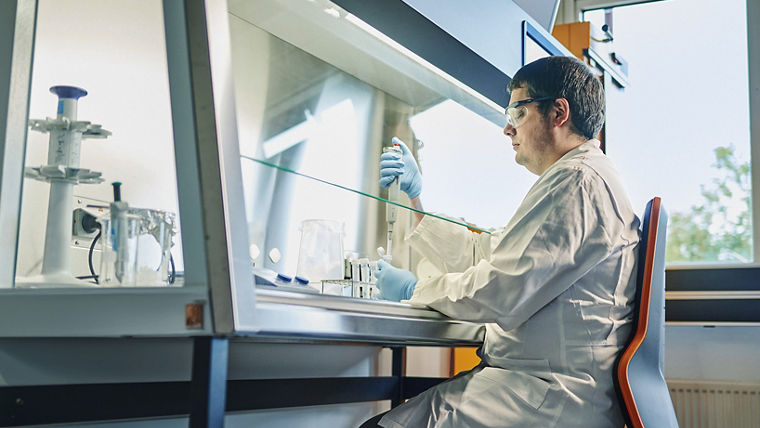Addressing climate challenges with next-generation solutions for animal nutrition
As the global population is projected to reach 9.7 billion people by 2050, the demand for protein is rising sharply, placing pressure on resource-intensive meat, dairy and seafood production. At the same time, farmers face increasing challenges, including climate change, biodiversity loss and antimicrobial resistance.
Evonik addresses these challenges by offering its customers next-generation solutions that improve feed efficiency, enhance animal health, and reduce the environmental impact of animal feed and farming. Through in-house life cycle assessments, Evonik ensures its products have low product carbon footprints – helping customers meet their own sustainability goals.

At Evonik, we have over many years been striving to reduce the environmental impact of livestock farming. This is most clearly shown with our premium amino acids, state-of-the-art analytical services and specialty products that improve nutrition, health, efficiency and sustainability outcomes. Our product LCAs, meanwhile, demonstrate the low carbon footprint of Evonik products.
Director of Sustainability at Evonik Animal Nutrition
Less environmental impact through transparency and tailored solutions

Evonik’s products and services help farmers develop feeds that reduce nitrogen emissions, lower feed costs, and promote resource efficiency. In particular, our externally-certified life cycle assessments (LCAs) provide insights into the environmental impact of livestock farming. These LCAs demonstrate the reductions in greenhouse gas emissions farmers can achieve when using Evonik products and services in feed formulations, without affecting animal performance. They allow producers to access data they need to choose lower-footprint products, reduce their Scope 3 emissions and develop more sustainable feed products.

Cutting-edge improvements in production to lower carbon emissions along the value chain
Evonik's solutions offer livestock farmers the lowest product-specific carbon footprint options available. For instance, the product-specific carbon footprint of MetAMINO® is about 35% lower than the average product carbon footprint of industrially-available methionine sources.* Evonik’s other feed additives also offer outstanding sustainability benefits. Biolys®, our L-lysine source for animal feed, is close to carbon neutral. How is this possible? Evonik’s global production network is being constantly upgraded by implementing technologies such as green hydrogen, by investing in backward integration, and by other efficiency improvements, for instance in its biotechnology platform and the repurposing of co-products.
Less carbon footprint for more sustainable animal production
Discover our white paper, which is about how Evonik reduces carbon emissions through renewable energy and innovative production improvements – and how transparent Product Carbon Footprints help customers lower Scope 3 emissions and meet sustainability targets.

Further information and downloads
Get in touch with our experts
Whether you run a feed mill or livestock operation, produce meat, dairy, or eggs – Evonik is here to support you. Wherever you're located and whatever your needs, our Evonik Animal Nutrition specialists are ready to assist you.

*Methodology for global industry average excluding Evonik: estimated internally by Evonik‘s market intelligence, technology and lifecycle assessment experts. Industry methionine sources include DL-methionine, L-methionine and methionine hydroxy analogue (MHA). Global Warming Potential is estimated accounting for the higher bioavailability of methionine in MetAMINO® versus MHA (e.g. Lemme et al., 2020; Li et al., 2023).





